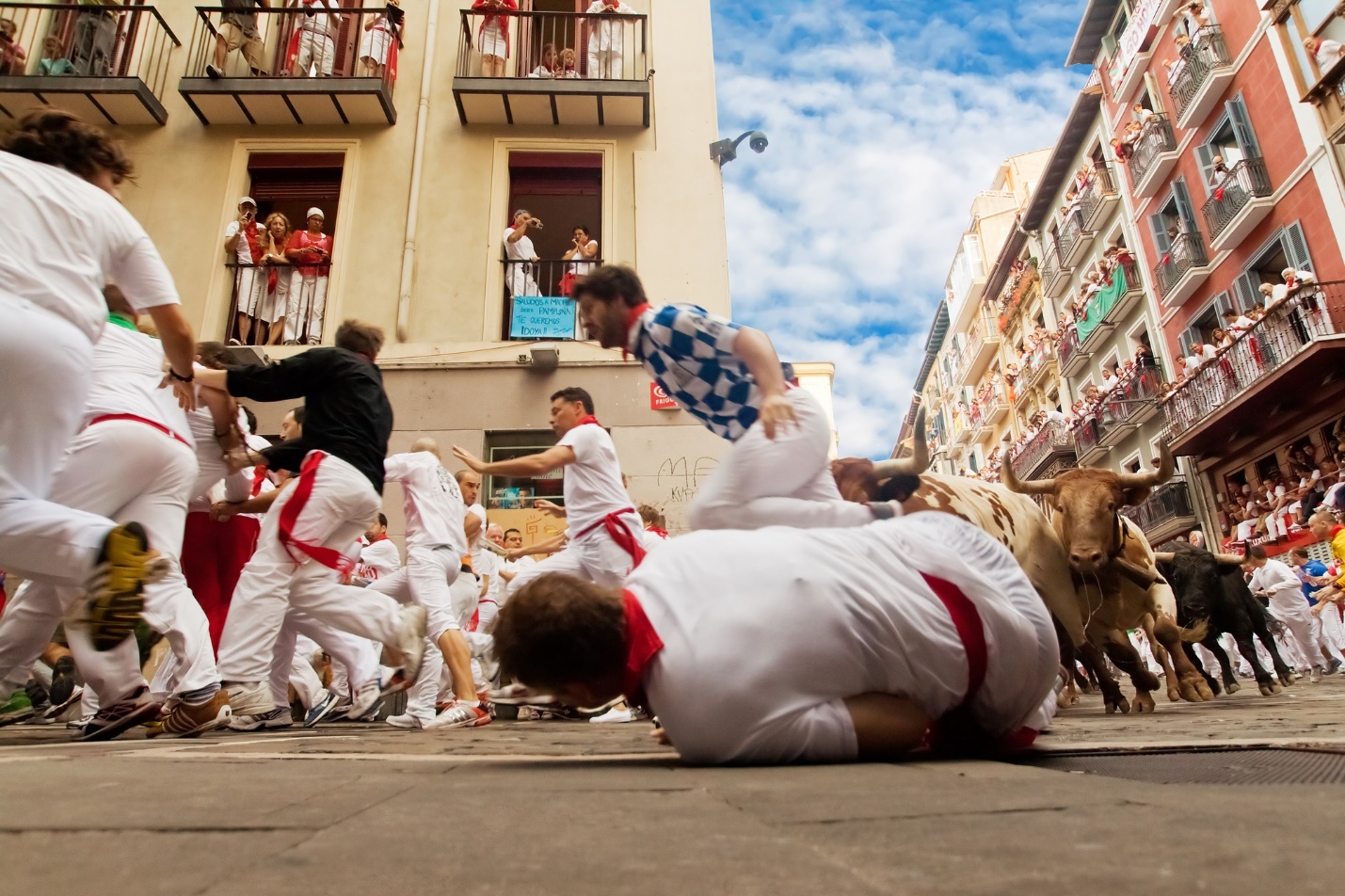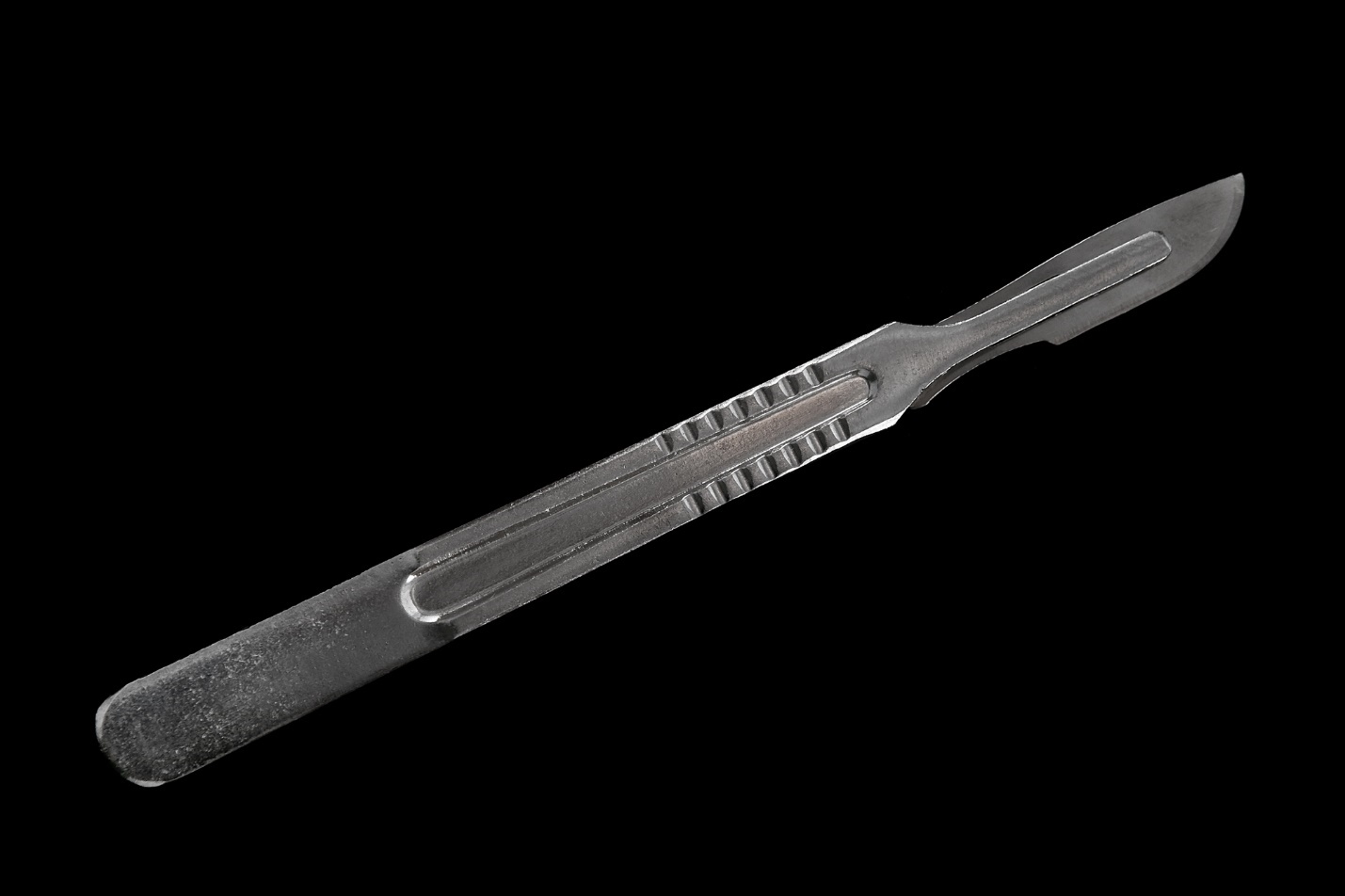BP 110

Some of you may have heard of Ernest Hemingway, an American writer who died in 1961. Many called him the greatest writer of the twentieth century. He was a man’s man, witnessing the dangers and gore of armed conflict as a war journalist and an ambulance driver that on one occasion left him injured. During WWII, he flew several missions with the RAF and participated in D-Day and, later, the liberation of Paris. Even though he participated as a journalist during the second world war, the soldiers he accompanied commented on Hemingway’s courage.
Hemingway also traveled to Africa to hunt big game; he frequented Pamplona, Spain, for the annual San Fermin festival to spectate and purportedly to participate in the infamous running of the bulls and to practice his amateur bullfighting skills; and he engaged in countless other activities that some have referred to as hyper-masculine.
Ernest Hemingway was a man larger than life. Then, he suicided.
His friend, A. E. Hotchner, wondered why would someone “whom many critics call the greatest writer of his century, a man who had a zest for life and adventure as big as his genius, a winner of the Nobel Prize and the Pulitzer Prize, a soldier of fortune with a home in Idaho’s Sawtooth Mountains, where he hunted in the winter, an apartment in New York, a specially rigged yacht to fish the Gulf Stream, an available apartment at the Ritz in Paris and the Gritti in Venice, a solid marriage . . . good friends everywhere . . . put a shotgun to his head and [kill] himself”?
There are so many variables that may have contributed to Hemingway’s suicide not the least of which were his lifelong physical maladies. Contributing to his suffering were high cholesterol and blood pressure, malaria, skin cancer, dysentery, six serious concussions that led to chronic headaches, ringing in the ears, mental haziness, and possibly even a TBI. Multiple injuries sustained in two plane crashes a few years before he suicided also impacted his physical health.
Ernest also suffered from too much iron in the blood (hemochromatosis) that typically causes damage to joints and organs including the heart and the liver. Diabetes was also in the mix.
To deal with his bodily pain, Hemingway began to drink more heavily adding yet another burden to his ravaged body.
Besides his bodily ills, Hemingway also was afflicted with depression, delusions, and paranoia–especially as he aged. All these symptoms slowly robbed him of his ability to write, a huge loss for a man who had won a Pulitzer Prize for his literary creativity. During two mental health hospitalizations [at Mayo Clinic in Rochester] toward the end of his life, Ernest received electroshock treatments that only further interfered with his ability to write.
By this time, his desire to die was deeply entrenched. One source recounts the last weeks of Ernest’s life:
“While leaving for his second stay at the hospital, Hemingway said he needed to go into his house to get a few belongings. He was accompanied by a nurse, doctor, and friends, who had to monitor him constantly to keep him from harming himself. But as soon as he opened the door, he rushed over to his guns, chambered a round into a shotgun, and was only stopped from killing himself by a friend tackling and physically restraining him. Before getting on the plane to take off, he tried to walk into a spinning propeller. Once the plane was in flight, he twice attempted to jump from the aircraft.”

Hemingway shot himself in the head a day and a half after returning home from the hospital.
Some say his mother, Grace, contributed to Ernest’s demise. Documented clearly by photos as well as by his sister’s book where she tells all the family secrets, Ernest’s mother had treated little Ernest as the girl she had wanted. The story goes that Grace had always wanted twin girls but ended up with a daughter and then a son eighteen months apart. Taken hostage by her twin fantasy, the mother made Ernest, for the first five years of his life, a girl.
One writer says, “Soon his mom was buying two of everything and dressing her children in identical pink gowns and flowered hats. She would refer to the kids as her ‘sweet Dutch dollies’ and actually tell strangers that they were her twin girls. To perpetuate the twin fantasy, Grace even held Marcelline [Ernest’s older sister] back a year in school so that she and Ernest would be in the same grade together. Oh, and his mother so treasured the fantasy of Ernest being a little girl that she sometimes referred to him as ‘Ernestine.’ Anyone looking for a reason why he grew up to make such a show about being masculine?”
Psychologists and writers propose that the five-year feminization of Ernest as a young boy by his dysfunctional Christian mother (who knows how long it actually lasted since it may have gone beyond cross-dressing to more of an emotional dynamic that persisted for years) likely led Hemingway to compensate for feelings of unmanliness by becoming an alpha male—uber masculine. This compensation led him to participate in many dangerous activities that, over time, contributed to his physical and mental suffering.
The focus of this blog is the phenomenon of castration enacted by mothers toward their boys (or also by teachers toward their male pupils). Castration, briefly defined, is the practice of de-masculinizing a boy either by hard methods or soft.
Soft castration occurs when a mother (or any female in authority over boys or men) undermines her son’s masculine development for any number of reasons. She might project her own desires for protection onto her son and coddle him; she might find her husband’s treatment of her little boy too mean (actual or perceived) and so shelter him from his father’s ‘harshness’; she might be possessed by a nagging fear that something painful or fatal will befall her son so she limits his activities to the point that he feels removed from the realm of other boys; or, due to a difficult relationship with her husband, the mother may enmesh with her son and (consciously or subconsciously) relate to him as a surrogate husband (see the recent post on incest).

Hard castration may occur when a woman has been abused emotionally, physically, or sexually earlier in her life by a male whether a father, brother, or other man. Due to trauma or not dealing with the past abuse, this woman may grow up to control her son (and possibly her husband) either out of deep anger toward men in general or because she needs all present-day men to be safe, kind, predictable, soft, tame—the opposite of the man/men who abused her in the past. Hard castration is often associated with radical feminism.
James Garner, the movie actor who starred in the TV series Maverick and Rockford Files, experienced hard castration. After Garner’s mother died, his father remarried several times, and James came to hate one of his stepmothers, Wilma, who beat all three boys (especially James). Garner said that his stepmother, Wilma, also punished him by forcing him to wear a dress in public. When he was 14 years old, he fought with her, knocking her down and choking her to keep her from killing him in retaliation. Shortly after that incident, Wilma left the family and never returned. The hard castrator would never return for James.
Interestingly, men like Ernest Hemingway may cope with their mother’s feminizing treatment by becoming hyper-masculine (including abuse or control of females) while women who have been abused by men may grow up to castrate their boys either in a soft or hard way. A cycle may develop where both the boys and girls grow up and act out due to unresolved childhood castration or abuse by mothers or fathers, teachers or siblings. Tragically, they continue what can appear to be a never-ending pattern.
Genesis 3:16 likely addresses this acting out (sin) when God says to the woman after the Fall, “Your desire shall be contrary to your husband, but he shall rule over you.” In other words, after rebellion and disobedience invaded Eden, a woman’s bent will be to oppose and disrespect her husband in an attempt to overpower him while the husband’s sin will be to control and diminish his wife with abusive power that treats her like an object.
Since this post is addressing castration of the boy by the mother, what can mothers be aware of as they raise their male children? Avoid the demasculinizing behaviors mentioned above and instead practice the following:
- Steer your sons toward their father especially as they move toward 10-11 years old. (Fathers, be available and intentional about leading and teaching your sons.)
- Encourage them to explore, experiment, and even take a few risks (within reason)
- Consciously raise your sons to be men even through the clothes they wear and the activities they pursue. You are living in a culture that is actively attempting to demasculinize men and treat them in the same fashion as women. Do not let yourself be sucked into that anesthetizing spirit of the age. Choose to cultivate a masculinity in your sons that is about servanthood flowing out of strength. It has nothing to do with Neanderthal behavior.
- Instead of teaching your sons to be nice, raise them to be loving.
- Give your sons the gift of a healthy marriage so they will not feel the need to step in as your surrogate husband and protector.
- Teach your sons to make decisions instead of looking to others to decide for them
- Inculcate proactivity in your sons, not passivity. The world wants passive men. God wants warriors who know how to set boundaries, be angry without sinning, treat a woman like Jesus would, and fight to the death to protect those they love.
- Let your sons disagree with you and feel free to say no to you all the while teaching them to obey you.
- Yes, raise your son to respect you, not to take care of you.

In conclusion, mothers, do not be party to the castration of your sons. If you engage in soft or hard castration, you are sinning against them and against the God who made them to be men. If you have unfinished business with your father or other men in your life who may have abused you (here is where I am angry for you), deal with it. Now. Don’t avoid these unhealed dynamics and allow them to roll downhill toward your son, your husband, and possibly even God the Father.
Raise men of God, not boys of the culture. Teach them to be separate from you, not enmeshed.
I don’t care what our culture tells you . . . a castrating spirit—soft or hard–never looks good on a woman. Build men, don’t tear them down. Don’t be party to your son’s feminization (or your husband’s disrespect). Avoid the creation of an Ernest Hemingway. Instead, raise a David who will possess the courage not only to stand up against physical enemies but also against those of the soul and the heart.
Blessed indeed is the family whose mother does not cultivate castrated boys but raises courageous men.
Her children rise up and call her blessed; her husband also, and he praises her: “Many women have done excellently, but you surpass them all.” Charm is deceitful, and beauty is vain, but a woman who fears the LORD is to be praised ~ Proverbs 31:28ff
Be watchful, stand firm in the faith, act like men, be strong ~ 1 Corinthians 16:13
May our sons in their youth be like plants full grown ~ Psalm 144:12
